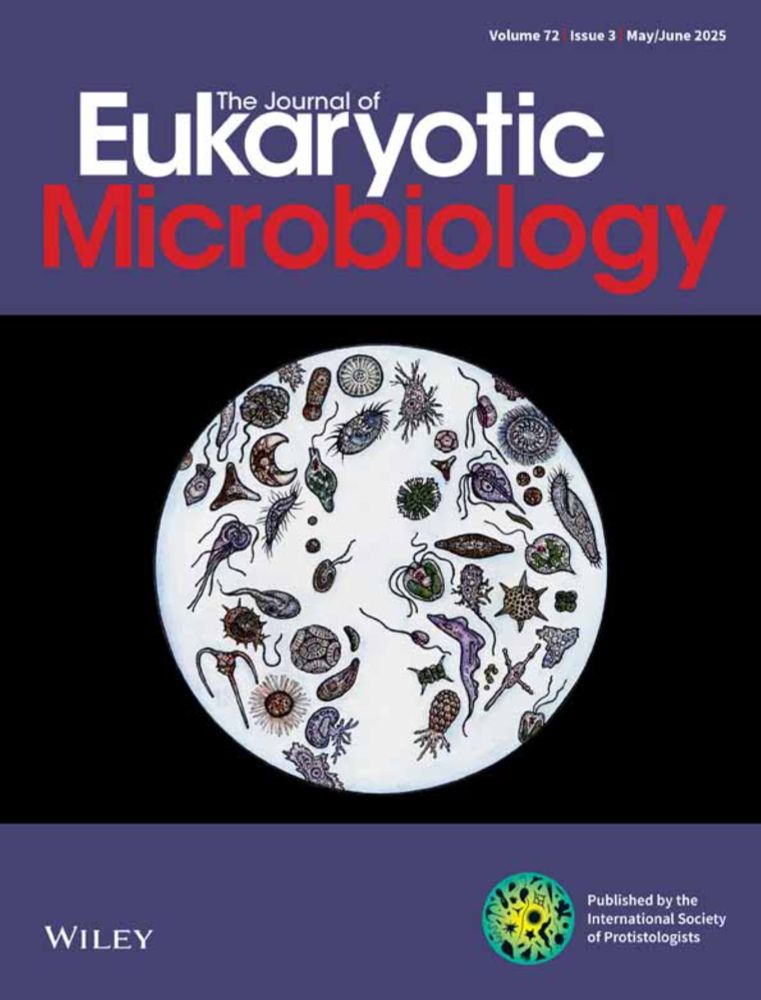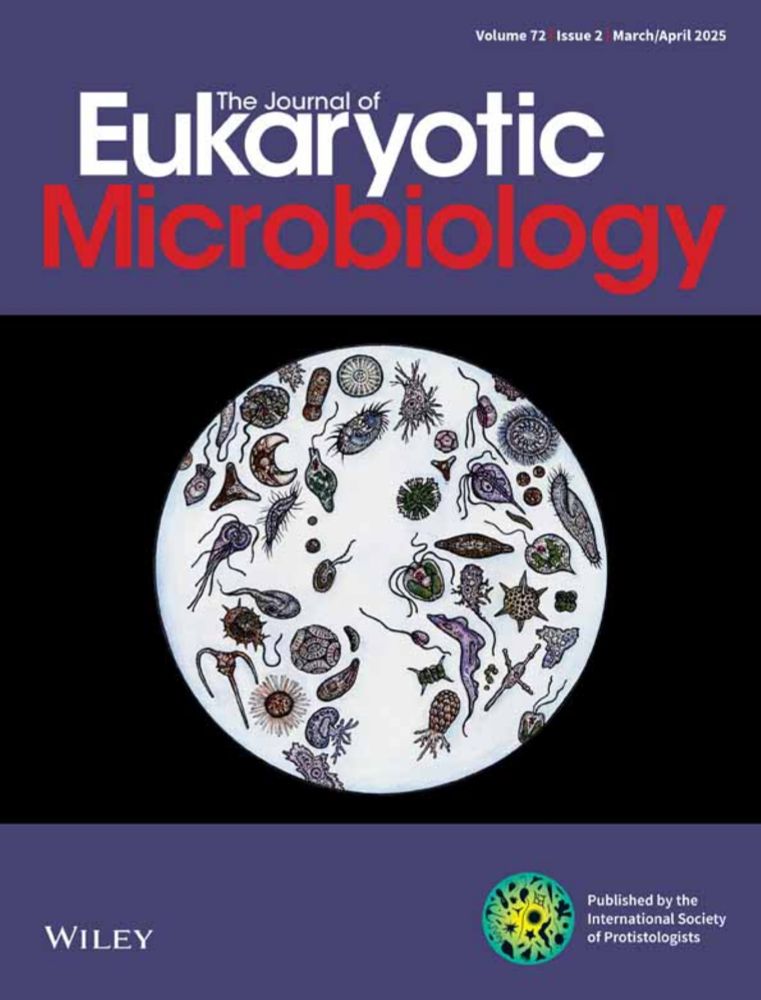
the word congratulations is surrounded by dots on a white background
ALT: the word congratulations is surrounded by dots on a white background
🥳Congratulations to Monica Santin and colleagues for winning the Trager Award for the most cited paper in the past two-year period.
➡️Check out the paper: Division of Blastocystis ST10 into three new subtypes: ST42-ST44
onlinelibrary.wiley.com/page/journal...
#protistsonsky
27.06.2025 17:18 — 👍 3 🔁 0 💬 0 📌 1
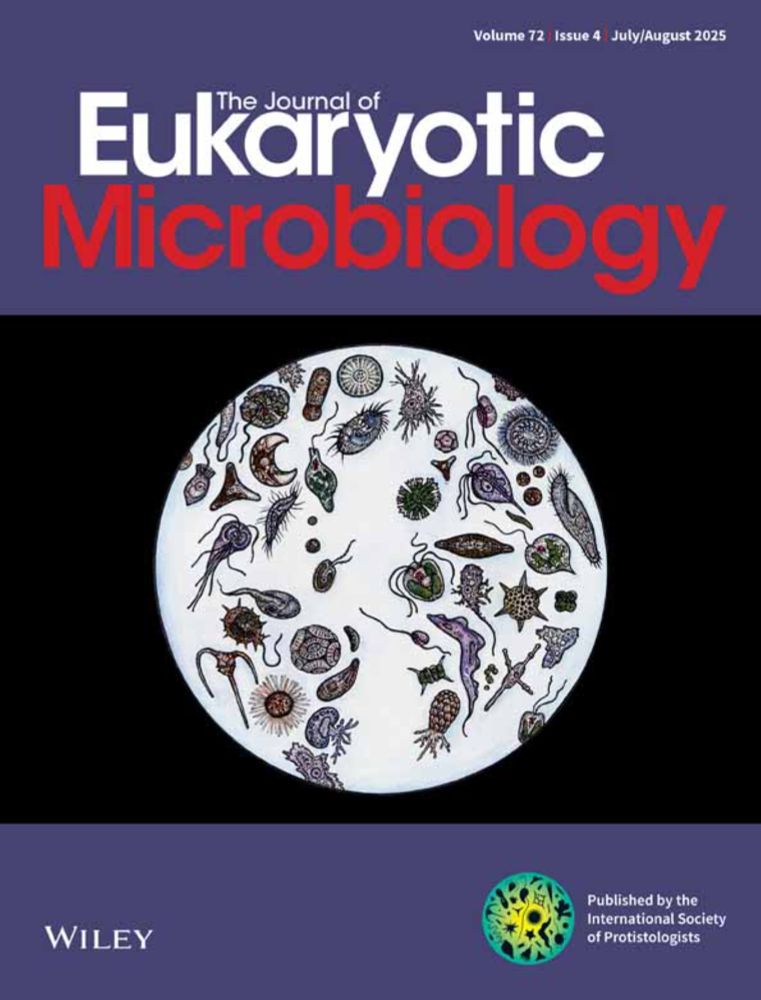
JEM Spotlight on Parasitology: Journal of Eukaryotic Microbiology
Click on the title to browse this issue
We're highlighting some of the best #parasitology papers we've published in the last 5 years. Check out this special collection.
#protistsonsky
onlinelibrary.wiley.com/doi/toc/10.1...
24.06.2025 17:23 — 👍 7 🔁 2 💬 0 📌 2
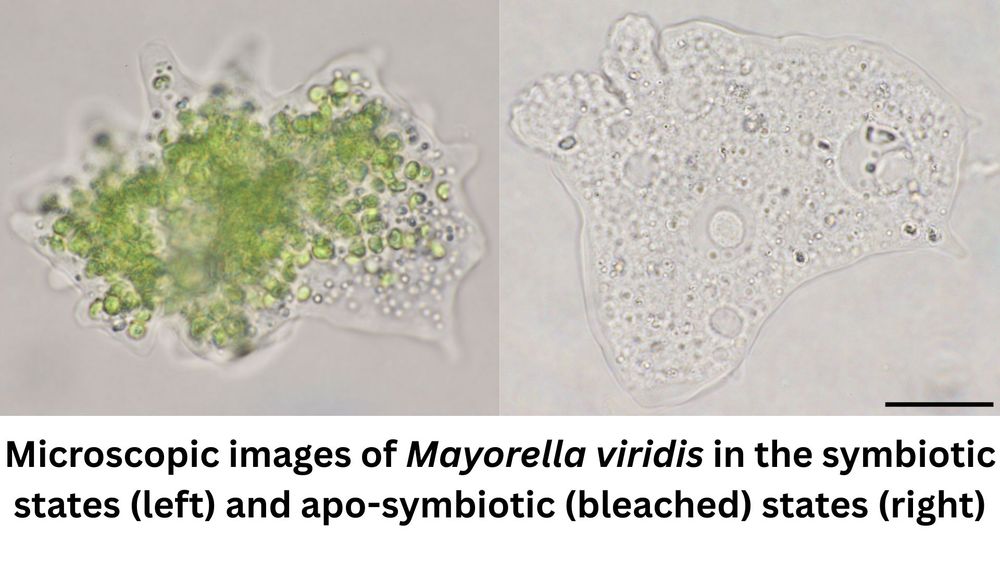
Highlighted paper! Daisuke Yamagishi, et al. open a new front in the drive to understand photosymbiosis in protists.
Article➡️ doi.org/10.1111/jeu....
#protistsonsky
05.06.2025 17:49 — 👍 11 🔁 5 💬 0 📌 1
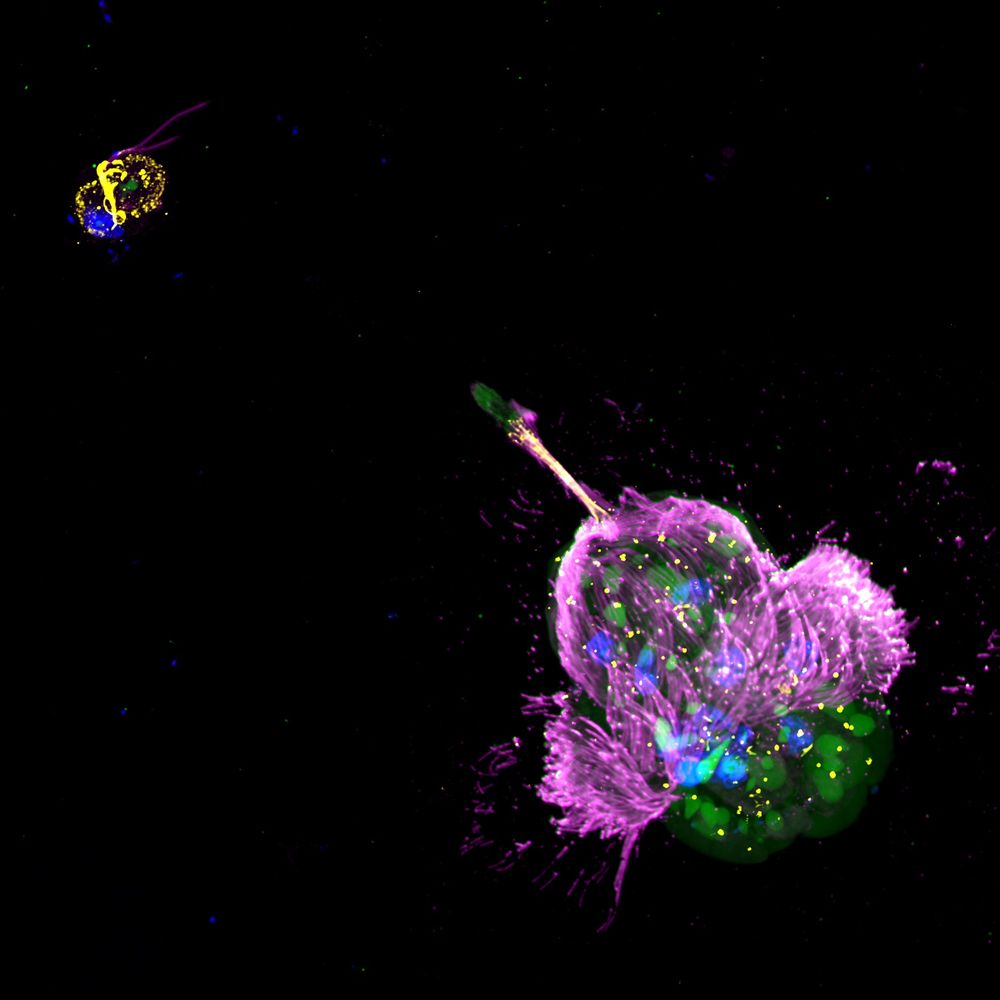
The marine ciliate Mesodinium rubrum (bottom right) is famed for its ability to steal chloroplasts and nuclei from red cryptophyte algae in the Teleaulax/Gemingera clade. But even these prey specialists can make "mistakes," ingesting blue-green Hemiselmis pacifica (upper left) and transiently retaining their plastids. Here, a M. rubrum cell points its feeding tentacles (labeled with an anti-centrin antibody, yellow) at an H. pacifica cell. The cryptophyte's flagella and ciliate's cilia (labeled with an anti-tubulin antibody, purple) and nuclei (labeled with DAPI, blue) are visible in this expansion micrograph taken with a Nikon spinning disk confocal microscope. Numerous stolen prey nuclei are visible inside of the M. rubrum cell. See Moeller et al. https://doi.org/10.1111/jeu.13066
Check out exciting protist research in JEM! Holly Moeller et al. explore the feeding habits of Mesodinium rubrum and provide a tool for studying its cell biology and photophysiology in their open access paper in our March/April issue!
doi.org/10.1111/jeu....
#protistsonsky
08.05.2025 12:00 — 👍 17 🔁 5 💬 0 📌 2
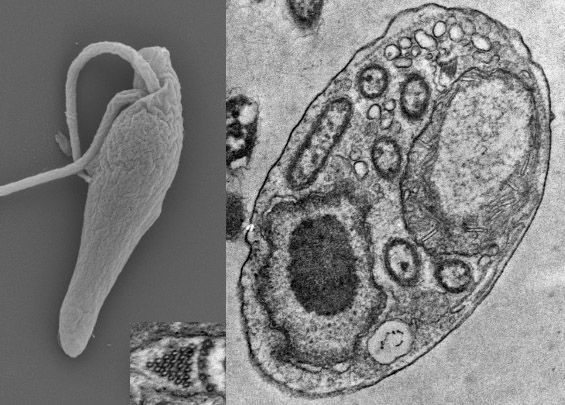
Scanning and transmission electron micrographs of Novijibodo darinka n. gen. n. sp.. Ventral view of cell with flagellar pocket, and cross section of cell with nucleus, mitochondrion containing kinetoplast, microtubular prism (enlarged), and endosymbiotic bacteria. Images taken by J. A. Packer. See Packer et al. https://doi.org/10.1111/jeu.13072
We’ve published some incredible protist research in the first quarter of 2025! Julia Packer, et al. describe two new species of free-living bacterivores including the one pictured here Novijibodo darinka. Check out the open access paper from our Jan/Feb issue.
doi.org/10.1111/jeu....
#protistsonsky
07.05.2025 17:30 — 👍 6 🔁 1 💬 0 📌 1
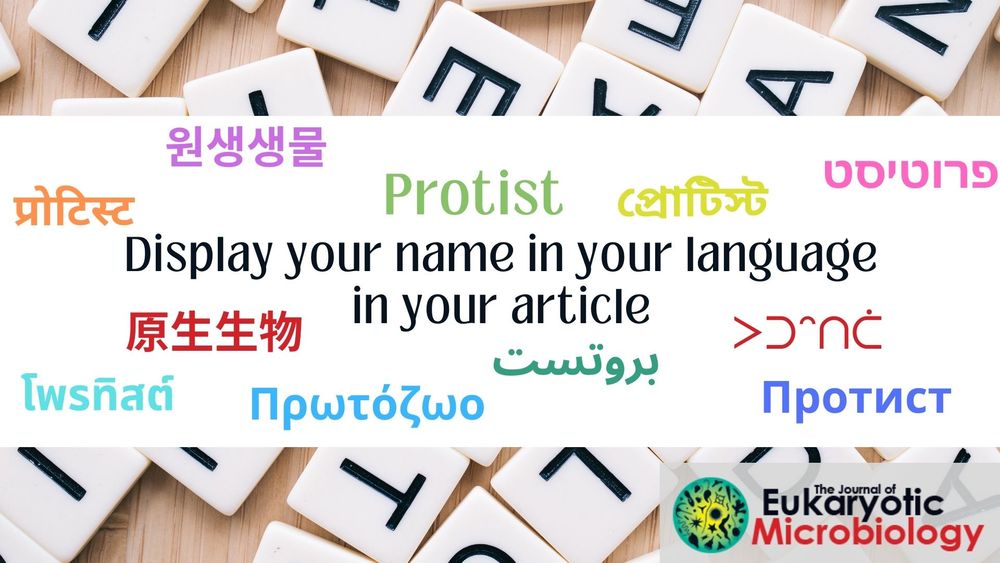
A graphic with letter tiles in the background. A white rectangle across the middle of the graphic includes the word Protist in several languages.
Protistologists work around the world in many languages and alphabets. At JEM, we want to meet you as you see yourself. Now authors can also include their names in any script they want in published papers at JEM. Learn how in our Checklist for Manuscript Preparation: bit.ly/3G3PANH
#protistsonsky
10.04.2025 17:46 — 👍 18 🔁 4 💬 0 📌 1

Light microscopy images of Divimonas melba n. gen. n. comb. from multieukaryotic culture CuF1Ancy in 150-ppt media.
Cultivation of Ancyromonas melba, and Reclassification as the Type Species of Divimonas gen. nov., a Phylogenetically Important Ancyromonad Lineage
Kate M. Barkhouse, Yana Eglit, Elizabeth J. Weston, Adriana B. A. Jenkins, Alastair G. B. Simpson
onlinelibrary.wiley.com/doi/full/10....
#protistsonsky
19.03.2025 17:44 — 👍 11 🔁 6 💬 0 📌 0
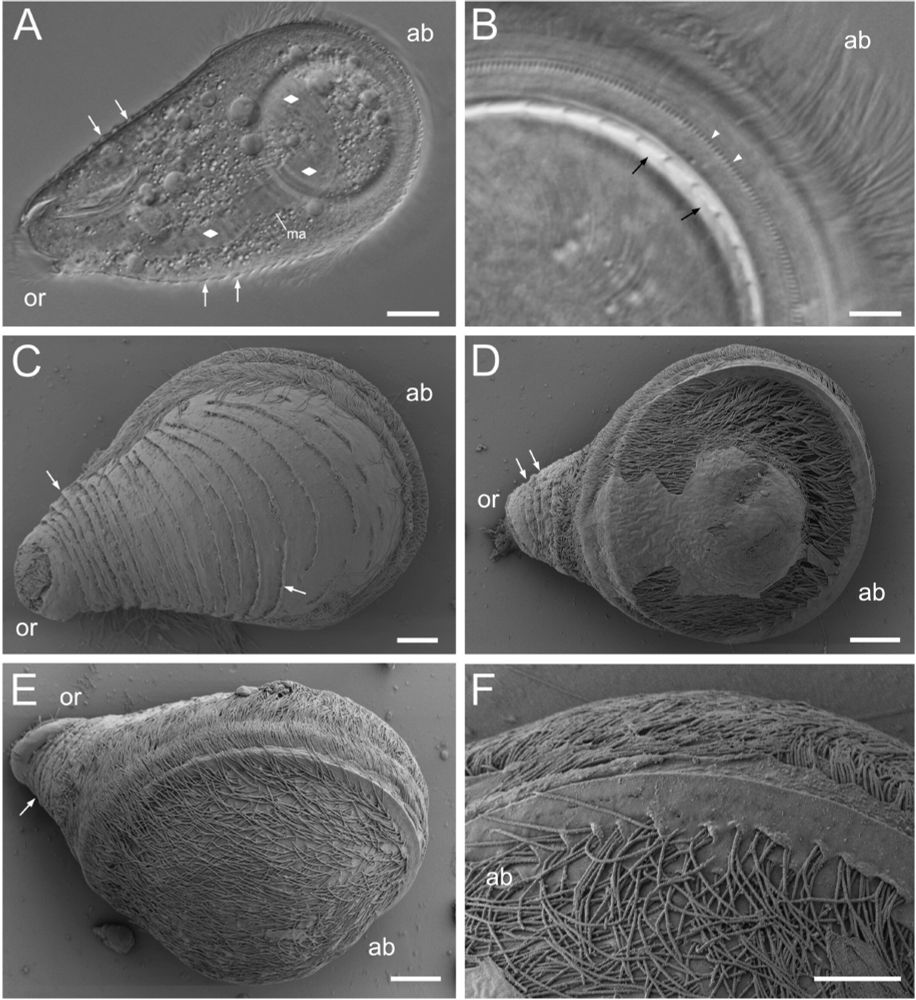
Light and scanning electron micrographs (SEM) of Urceolaria clepsydra n. sp. found in sea cucumbers.
Morphology and Molecular Phylogeny of Endosymbiotic Ciliates (Peritrichia, Mobilida) of Marine Invertebrates with Descriptions of Two Novel Species Urceolaria clepsydra n. sp. and Urceolaria bratalia n. sp.
Gabrielle Martinez, et al.
onlinelibrary.wiley.com/doi/full/10....
#protistsonsky
24.02.2025 12:39 — 👍 10 🔁 3 💬 0 📌 0
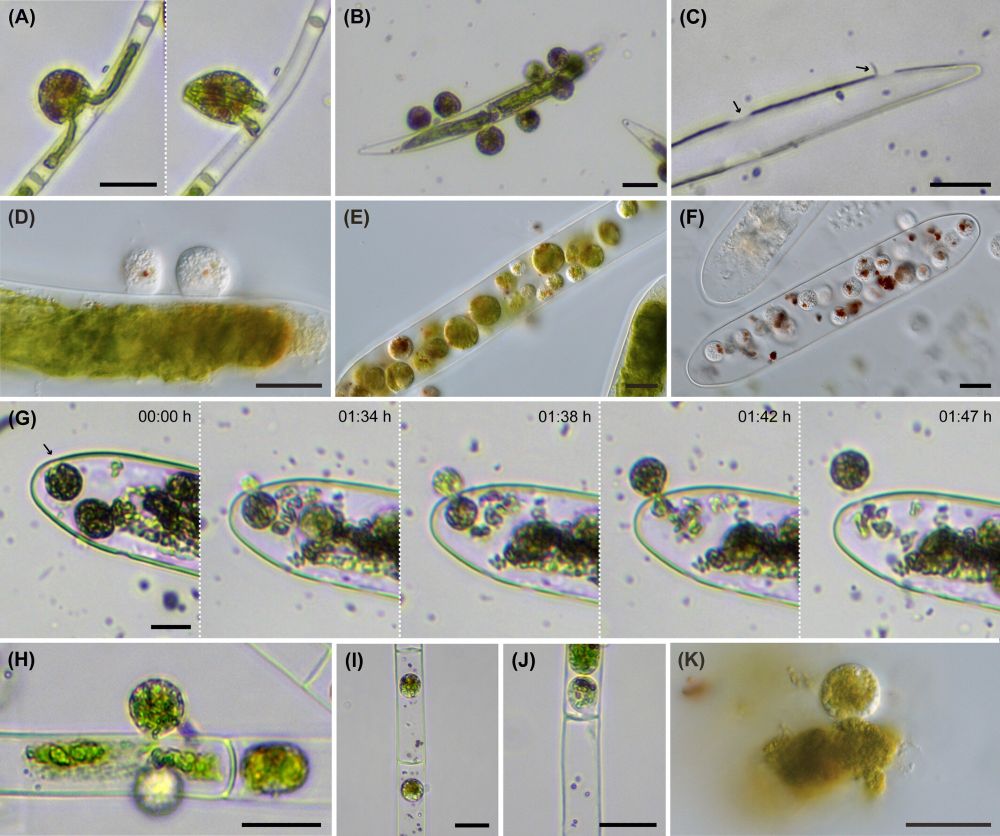
Orciraptor agilis (strain OrcA03) feeding on different zygnematophytes
Broad-range necrophytophagy in the flagellate Orciraptor agilis (Viridiraptoridae, Cercozoa) and the underappreciated role of scavenging among protists
Jannika Moye, Sebastian Hess
onlinelibrary.wiley.com/doi/10.1111/...
#protistsonsky
20.02.2025 17:43 — 👍 10 🔁 1 💬 0 📌 1
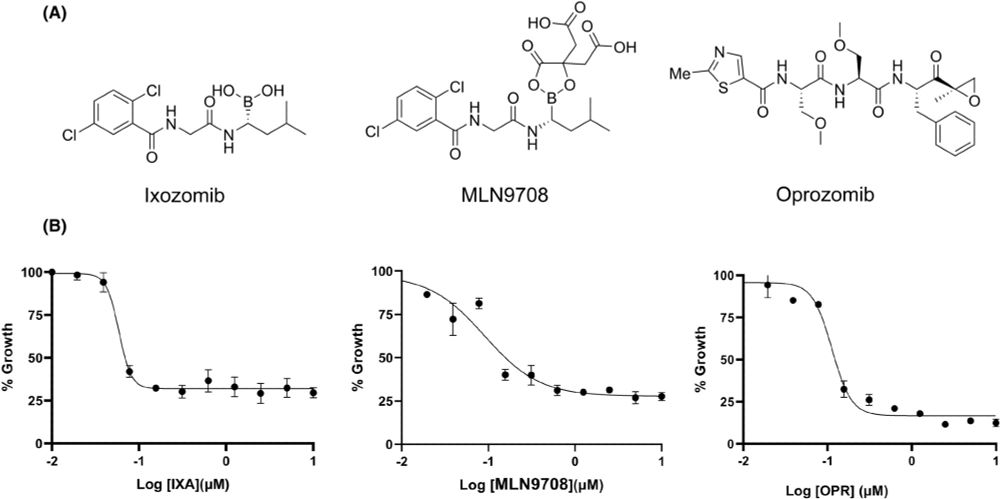
(A) Chemical structures of proteasome inhibitors including ixazomib, ixazomib citrate and oprozomib (B) Assessment of in vitro dose responses of protease inhibitors against Babesia duncani
Effect of protease inhibitors on the intraerythrocytic development of Babesia microti and Babesia duncani, the causative agents of human babesiosis
Temitope Aderanti, Jordan M. Marshall, Jose Thekkiniath
onlinelibrary.wiley.com/doi/10.1111/...
#protistsonsky
19.02.2025 17:12 — 👍 1 🔁 1 💬 0 📌 0
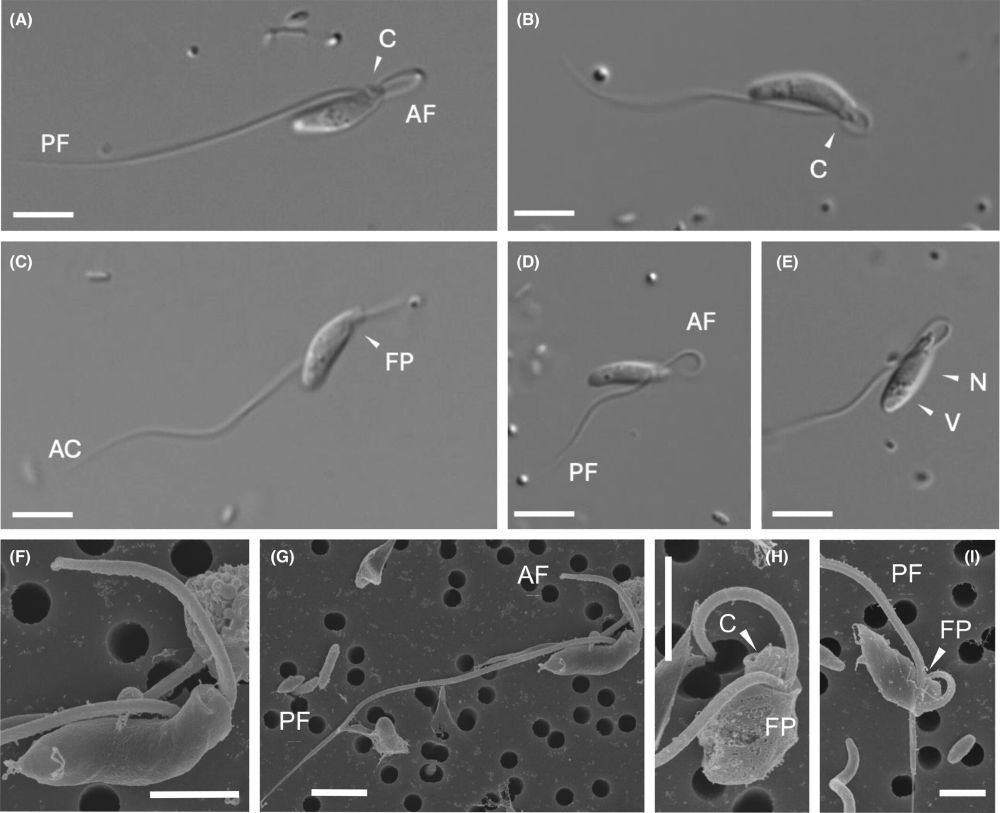
Morphology of Allobodo yubaba n. sp.
Characterization of Allobodo yubaba sp. nov. and Novijibodo darinka gen. et sp. nov., cultivable free-living species of the phylogenetically enigmatic kinetoplastid taxon Allobodonidae
Julia A. Packer et al.
onlinelibrary.wiley.com/doi/10.1111/...
#protistsonsky
29.01.2025 18:47 — 👍 18 🔁 8 💬 0 📌 1
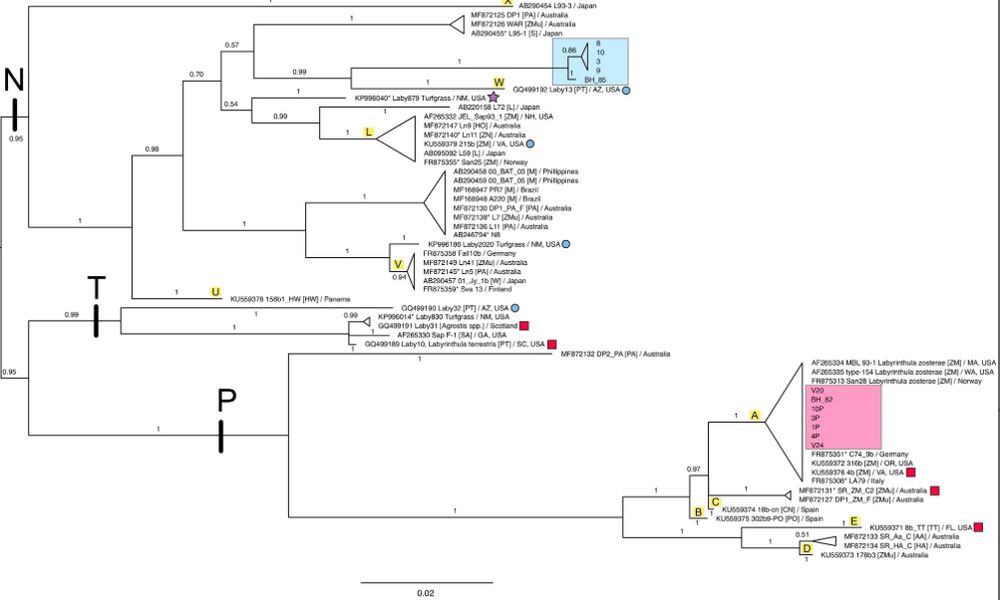
🚨 New paper! Pathogenicity and phylogeny of Labyrinthula spp. isolated in Washington and Oregon, USA - pathogenic isolates could be identified as L. zosterae, while nonpathogenic isolates did not form a clade with any previously identified SSU ribotypes 🧪onlinelibrary.wiley.com/doi/10.1111/je…
28.01.2025 17:18 — 👍 3 🔁 2 💬 1 📌 0
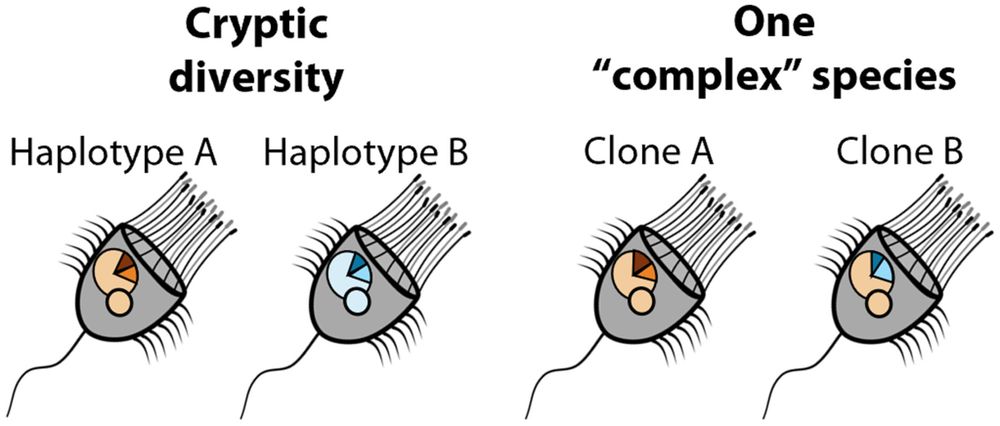
Schematic illustration of cryptic diversity in a ciliate species, in which several distinct dominant haplotypes (showing also intra-clonal diversity) are hidden behind one morphotype, and a ‘complex ciliate species’ comprising intra-clonal diversity within only one dominant haplotype.
The planktonic freshwater ciliate Balanion planctonicum (Ciliophora, Prostomatea): A cryptic species complex or a “complex species”?
Martina Schalch-Schuler, et al.
onlinelibrary.wiley.com/doi/10.1111/...
#protistsonsky
27.01.2025 17:22 — 👍 4 🔁 0 💬 0 📌 0
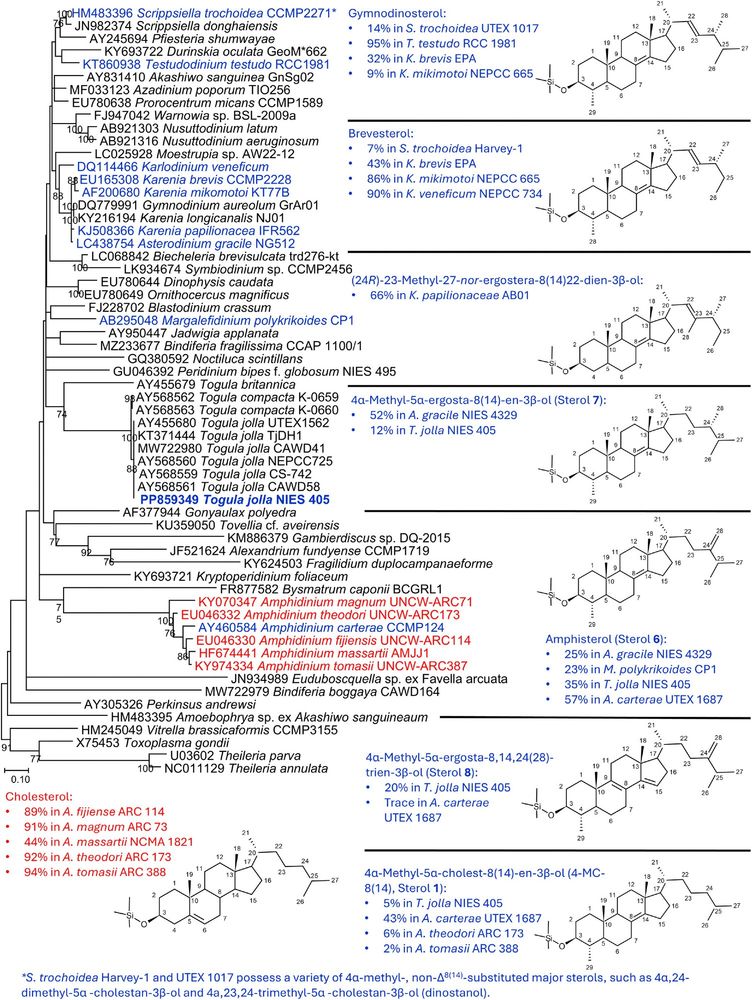
LSU rDNA phylogenetic analysis by maximum likelihood method showing the relationship between Togula jolla NIES 405 (in bold) and other Togula spp. strains.
Production of amphisterol and other Δ8(14) sterols by Togula jolla (formerly Amphidinium sensu lato) overlaps chemotaxonomically with Amphidinium carterae |
Braedyn E. Hollingsworth, Catharina Alves-de-Souza, Jeffrey D. Leblond
onlinelibrary.wiley.com/doi/full/10....
#protistsonsky
24.01.2025 17:41 — 👍 2 🔁 1 💬 0 📌 0
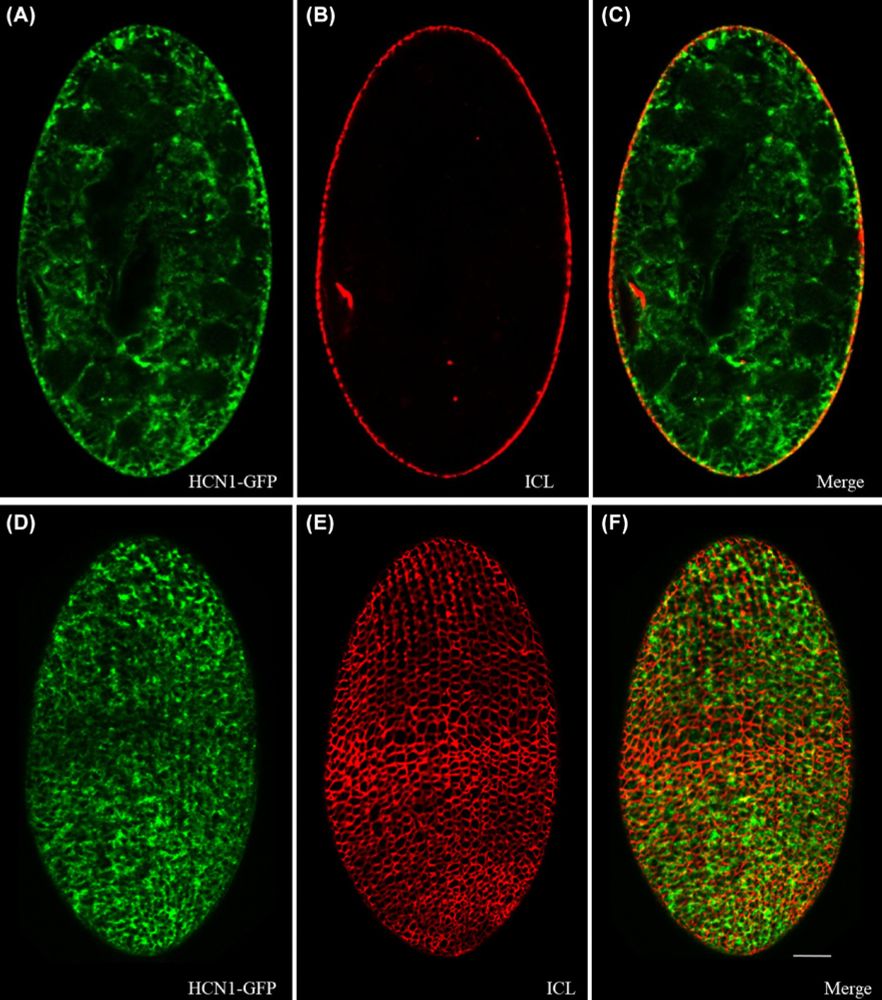
Localization of HCN1-GFP in Paramecium tetraurelia.
HCN channels are essential for the escape response of Paramecium
Daisuke Kandabashi, Mutsumi Kawano, Shinobu Izutani, Hiyori Harada, Takashi Tominaga, Manabu Hori
onlinelibrary.wiley.com/doi/10.1111/...
#protistsonsky
@dackslabecb.bsky.social
11.12.2024 18:47 — 👍 1 🔁 1 💬 0 📌 0
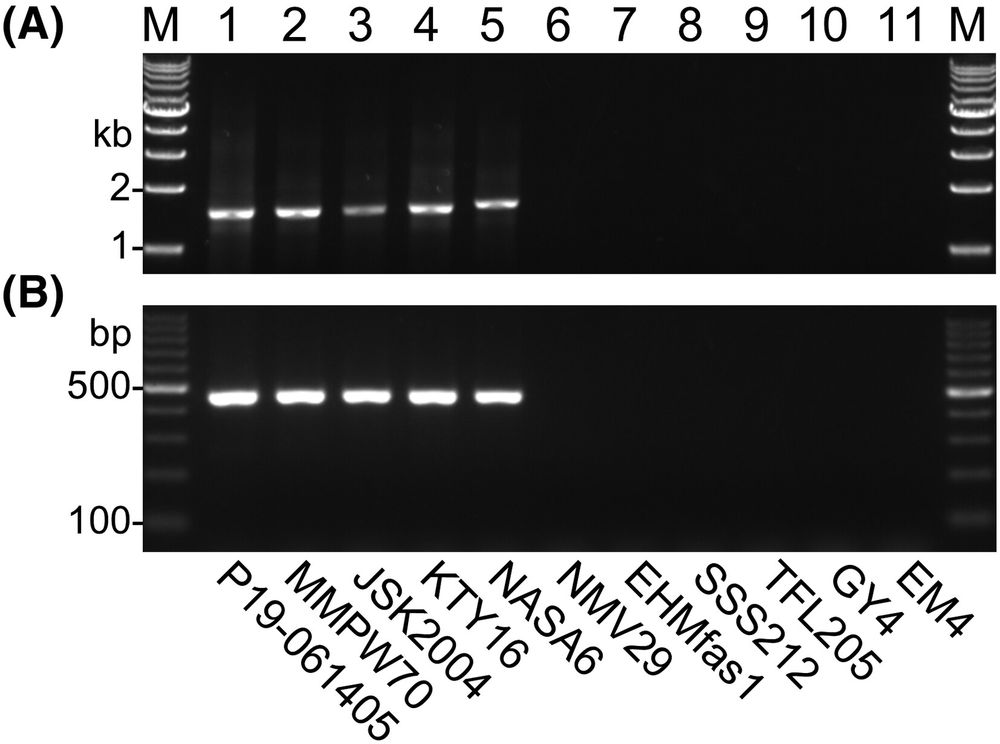
Detection of the PTORS gene from genomic DNA of various Entamoeba nuttalli strains.
Remarkable genetic variability and high antigenicity of the octapeptide-repeat region in an Entamoeba nuttalli-specific surface protein
Tatsuya Imai, Azumi Kakino, Akitomo Sugawara, Xunjia Cheng, Hiroshi Tachibana
onlinelibrary.wiley.com/doi/10.1111/...
#protistsonsky
@dackslabecb.bsky.social
10.12.2024 17:43 — 👍 1 🔁 0 💬 0 📌 0
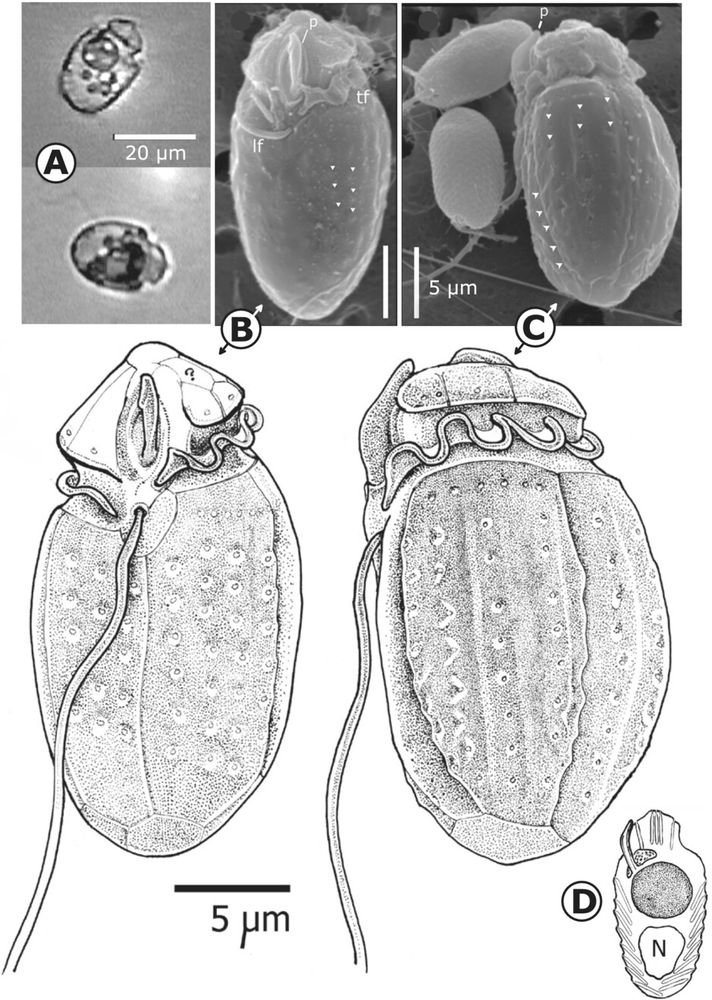
Microscopic images and depictions of Oxytoxum lohmannii (SPMC98).
Morphology, behavior, and phylogenomics of Oxytoxum lohmannii, Dinoflagellata
Elizabeth C. Cooney, et al.
onlinelibrary.wiley.com/doi/10.1111/...
#protistsonsky
@dackslabecb.bsky.social
09.12.2024 17:40 — 👍 17 🔁 5 💬 0 📌 0
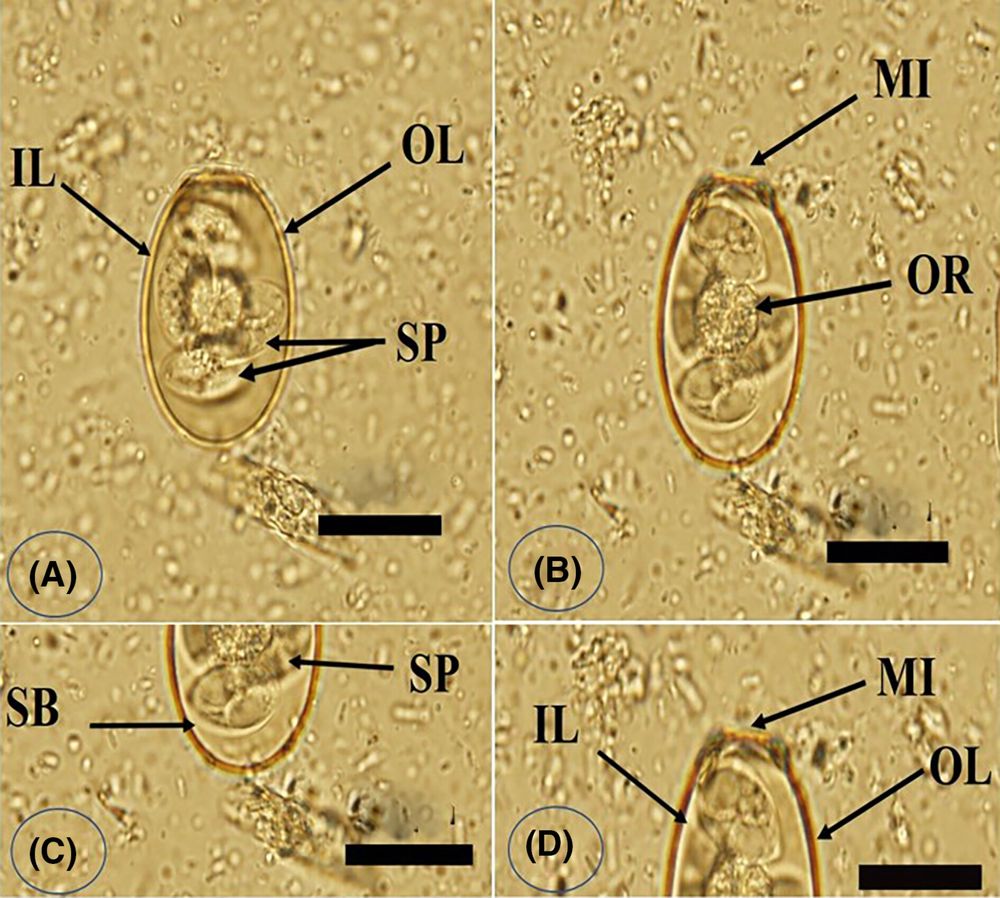
Photomicrographs of Eimeria magna oocysts
Morphological and molecular characterization of Eimeria magna infecting local rabbit (Oryctolagus cuniculus) in Alkarg City, Saudi Arabia
Mutee Murshed, et al.
#protistsonsky
@dackslabecb.bsky.social
onlinelibrary.wiley.com/doi/10.1111/...
06.12.2024 18:56 — 👍 5 🔁 1 💬 0 📌 0
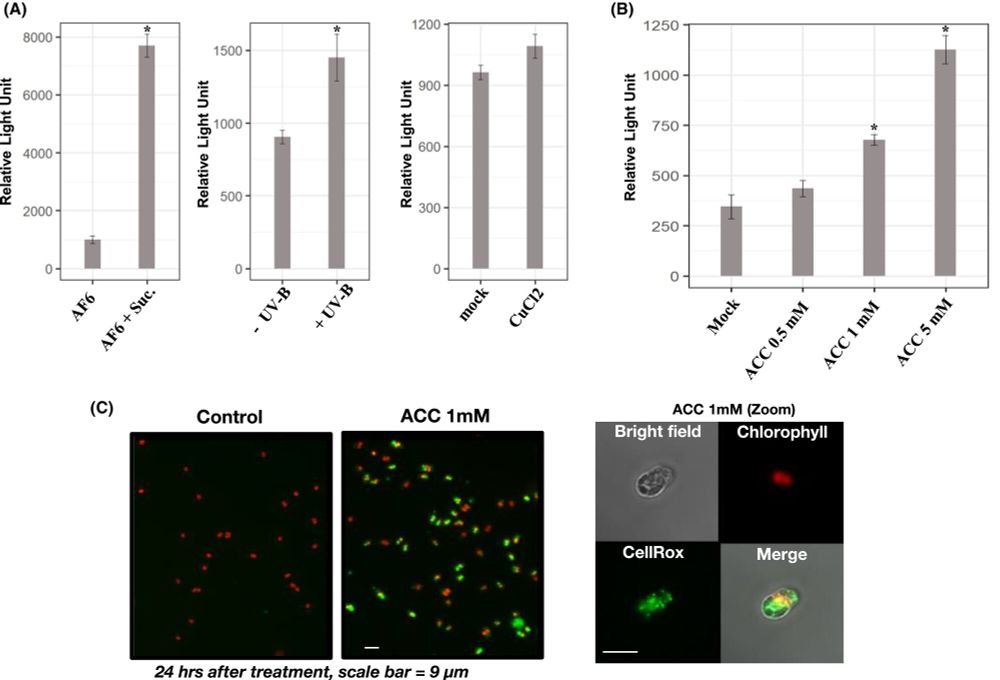
Functional stress responses in Glaucophyta: Evidence of ethylene and abscisic acid functions in Cyanophora paradoxa
Baptiste Genot et al.
onlinelibrary.wiley.com/doi/10.1111/...
@burnsajohn.bsky.social
#protistsonsky
@dackslabecb.bsky.social
05.12.2024 18:10 — 👍 3 🔁 2 💬 0 📌 0
Congratulations to JEM Associate Editor Elisabeth Hehenberger on receiving an ERC Consolidator grant.
#protistsonsky
@dackslabecb.bsky.social
04.12.2024 18:41 — 👍 10 🔁 1 💬 0 📌 1
#protistsonsky
@dackslabecb.bsky.social
04.12.2024 18:38 — 👍 6 🔁 2 💬 0 📌 0
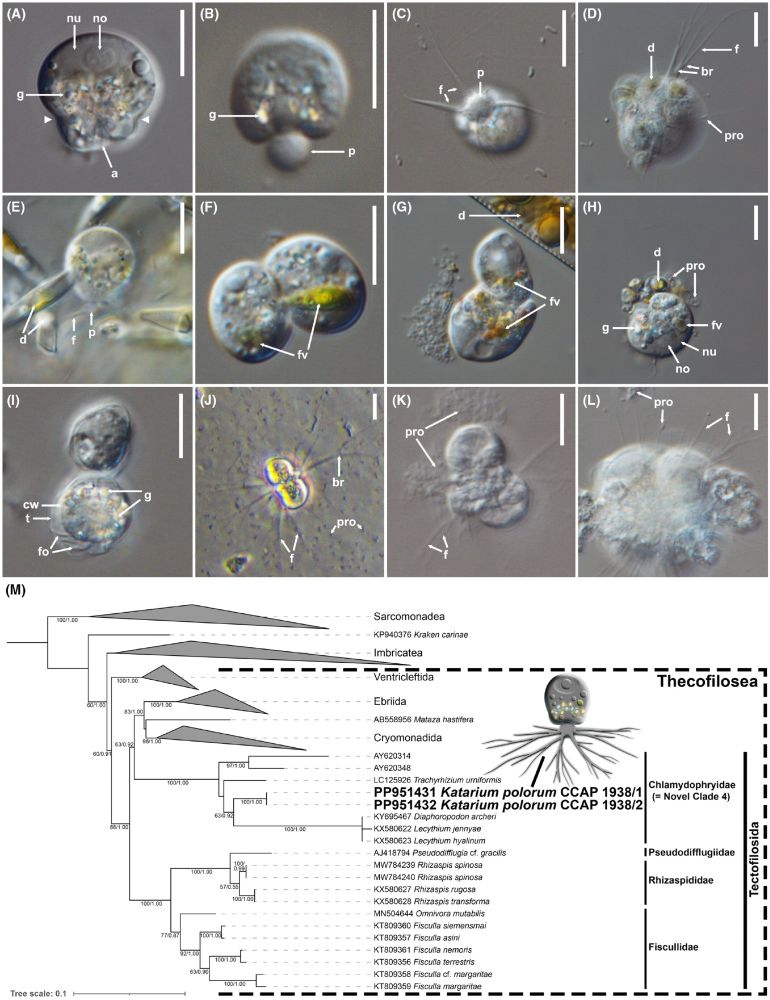
Interested in #polar #algae and their #predators? In this small paper we describe a novel genus of amoebae preying on #diatoms! Interestingly, the 18S sequence of #arctic and #antarctic isolates is completely identical. Meet Katarium polorum! doi.org/10.1111/jeu.... #protistsonsky
30.11.2024 15:17 — 👍 39 🔁 17 💬 1 📌 0
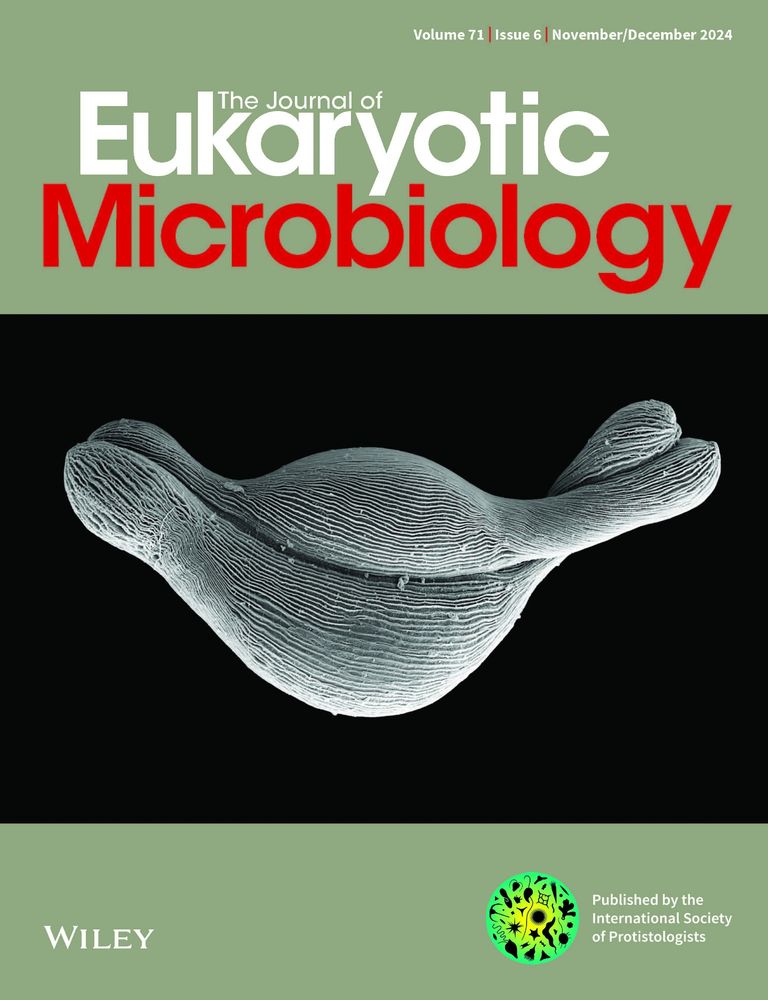
🚨 New Issue Alert 🚨
On the cover: SEM of a marine gregarine apicomplexan parasite, Amplectina cordis n. gen. et n.sp., showing two gamonts in sygyzy. (See Park & Leander. doi.org/10.1111/jeu....)
02.12.2024 17:19 — 👍 6 🔁 2 💬 0 📌 0





